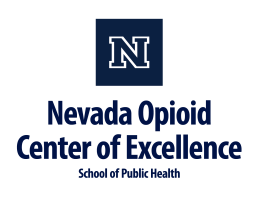Substance use disorders are common in the United States, with 2024 data indicating that more than 1 in 4 (25.5%) of persons 12 years of age or older used an illicit drug in the past year. The availability of highly effective direct-acting antiviral (DAA) medications has radically changed the assessment and
consideration of substance use, and more specifically opioid use, in hepatitis C virus (HCV) treatment decisions. This 90-minute webinar will provide an overview of the hepatitis C virus (HCV), including a focus on defining key epidemiological aspects, contrasting recent treatment advancements, and evaluating the integration of HCV testing and treatment into medications for addiction treatment (MAT)/medications for opioid use disorder (MOUD) programs and opioid treatment programs (OTPs). Attendees will learn practical strategies to improve HCV management and enhance patient outcomes.
Learning Objectives:
- Identify at least three (3) key aspects of the epidemiology of hepatitis C virus (HCV), including its transmission, prevalence, and at-risk populations.
- Explain at least two (2) recent advances in hepatitis C treatment, highlighting the differences and advantages of each treatment approach.
- Describe at least two (2) benefits of integrating hepatitis C testing and treatment into MAT and OTP care settings.
Presented by: Beth A. Rutkowski, MPH
Beth Rutkowski received her Master of Public Health degree, with an emphasis on epidemiology and quantitative methods, from the University of Medicine and Dentistry of New Jersey, School of Public Health. She has been associated with UCLA’s Integrated Substance Abuse Programs (ISAP) since December 2000, and currently serves as the Director of Training and Co-Director of the SAMHSA-supported Pacific Southwest Addiction Technology Training Center. The majority of Ms. Rutkowski’s time is focused on the development of synchronous and asynchronous training and intensive technical assistance curricula and training packages focused on evidence-based substance use disorder research and targeted to the community at large. In addition, she organizes and conducts conferences and trainings throughout the Pacific Southwest region (HHS Region 9, covering AZ, CA, HI, NV, and the six U.S. Affiliated Pacific Jurisdictions) on scientifically validated interventions and topics. Ms. Rutkowski is a NIATx-certified process improvement coach, and has directed several statewide, regional, and local process improvement change project initiatives. Ms. Rutkowski has co-authored and edited numerous peer reviewed research articles, book chapters, special issues, and technical reports on treatment evaluation, research-practice partnerships, process improvement strategies for use in substance use disorder and mental health treatment programs, prescription drug misuse, the epidemiology of methamphetamine and crack cocaine use, synthetic drugs, process improvement strategies to improve client engagement and retention in treatment, SBIRT, HIV and substance use, medications for alcohol and opioid use disorders, best practices in substance use disorder treatment, and local, national, and international drug trends.
Continuing Education Units: 1.5 CEU
This training is approved for continuing education by the boards listed here.
Funding for this activity was made possible in whole or in part by the Nevada Department of Health and Human Services (DHHS) Director’s Office through the Fund for a Resilient Nevada, established in Nevada Revised Statutes 433.712 through 433.744. The opinions, findings, conclusions, and recommendations expressed in our courses are those of the author(s) and do not necessarily represent the official views of the Nevada Opioid Center of Excellence or its funders.

